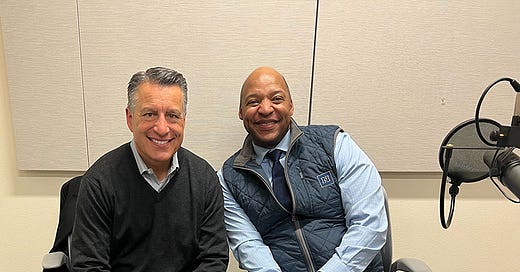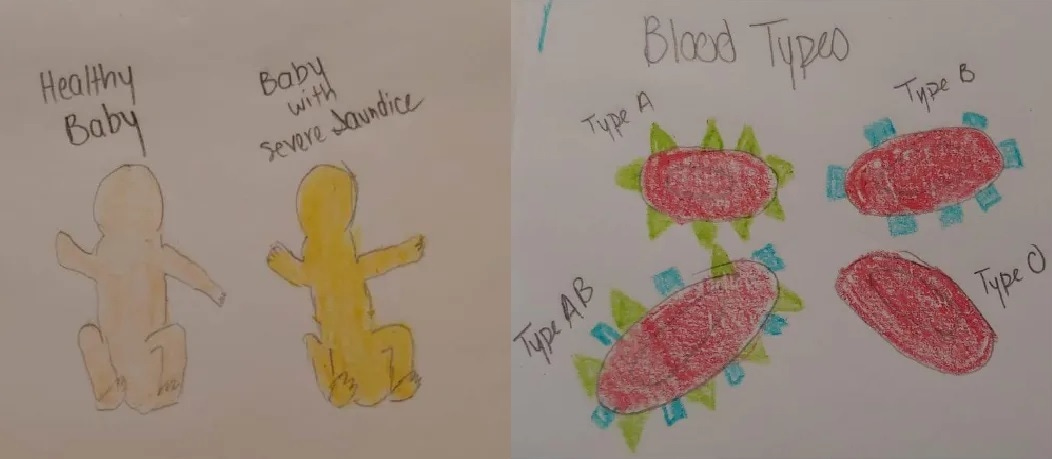Fruit Flies and Torment Executioners
What on Earth is Happening at the University of Nevada, Reno?
It’s been a rough few months for higher education. First, an academic misconduct scandal involving allegations of data fabrication by Harvard’s Francesca Gino and Duke’s Dan Ariely rocked the fields of psychology and behavioral economics, leading to the retraction of numerous studies and Gino’s eventual placement on administrative leave. Then, the presidents of Stanford, Harvard, and Penn were all forced to resign amid varying accusations, including more data manipulation, plagiarism, and free speech hypocrisy in the wake of the 10/7 Hamas attack on Israel.
Now, a new and even more bizarre research misconduct scandal has emerged, involving the Dean of the College of Engineering at the University of Nevada, Reno, Erick Jones. And while superficially, the developing Jones saga seems to be a simple case, albeit an unusually striking one, of shoddy research published in a bottom-feeder journal to pad the CVs of a group of collaborators, it actually provides a great deal of insight into ongoing debates about cronyism, administrative bloat, and the lack of accountability in academia.
The Scandal
Things began with an anonymous tip submitted to the blog of Columbia Statistician Andrew Gelman. In a post on February 6, Gelman flagged a paper that Jones had published in the International Supply Chain Technology Journal titled Using Science to Minimize Sleep Deprivation that may reduce Train Accidents. As Gelman noted, the paper is “so bad, you can’t believe it.”
It consists, in its entirety, of two paragraphs of poorly written, almost incomprehensible discussion of the links between the House’s passage of “a Bill to Avert a Rail Strike,” the contribution of fatigue to two recent commuter train crashes in New York, and the sleeping habits of Drosophila melanogaster, also known as the common fruit fly. “Our recent study has the premise that both humans and flies sleep during the night and are awake during the day,” reads one, fairly typical passage, “and both species require a significant amount of sleep each day when their neural systems are developing in specific activities.”
This is all very amusing, and you can find many examples of similarly absurd and nonsensical papers from the same journal in the comments of Gelman’s post. These include such gems as Understanding Musculoskeletal systems and using RFID Biosensor to measure pain (“Several studies have shown that overweight children are an actual thing”); A Statistical Analysis Arrival Times at the Airport Using Chi-Square and Box Plots Analysis (“All of the datasets were initially googled to find sources for the data we decided to make study for this project”); and Supply Chain Technology of Beauty Sleep (“This science describes how automated SC products can be integrated into women’s hair scarfs and silk pillowcases - often associated with keeping women’s hair in the desired style”).
A 2021 paper on Integrating RFID and Internet of Things to Monitor Baby’s Health includes a series of crudely drawn figures that appear to have been photographed on an iPhone and then pasted into the article, with predictably hilarious results:
And more seriously, the aforementioned 2020 entry on Understanding Musculoskeletal systems and using RFID Biosensor to measure pain appears to have been plagiarized from an article published the previous year in an even more obscure outlet called “The Professional Medical Journal.” In a follow-up blog post, Gelman suggests that the authors may have used a computer program to substitute words when copying over the text, leading to absurd results like “Most were taking drugs such as torment executioners, and 53.6% concurred to the truth that their torment level bothers them upon tedious developments.”
Subsequent reporting by Retraction Watch revealed that Jones had not only authored or co-authored upwards of 70 articles in ISCT during its seven-year publication run, but is also the journal’s founder and owner, and up until his appointment as Dean in 2022, had also served as its editor-in-chief. Other frequent contributors to ISCT include Jones’s wife, Felicia Jefferson, an Associate Professor of Biochemistry and Molecular Biology at UNR, his son, Erick Jones, Jr, an Assistant Professor of Industrial, Manufacturing, and Systems Engineering at Jones’s former employer, the University of Texas at Arlington, as well as numerous current and former graduate students at both UNR and UTA.
The Response
In the wake of these revelation, public statements by Jones, Jones, Jr, and ISCT’s current editor, Md. Mamum Habib, have provided very little in the way of clarity or explanation for the disturbing patterns of plagiarism, article duplication, and unbelievably shoddy scholarship alleged thus far.
In a comment posted to Gelman’s blog, Jones called the allegations a “hatchet job,” and described the journal, which charges authors a $199 fee for the publication of an accepted manuscript, as “not being profitable.” He also defended the fruit fly paper as presenting “a new idea supported by what is considered novel findings. It acknowledges the need for further investigation and serves primarily as a foundational study. Its brevity aims to bridge the gap between science and practical application, offering a concise note on this connection.”
Jones, Jr defended his father in comments made to Retraction Watch, stating that “He takes risks, and that seems to have worked out well in his life.” On ISCT, he described the issues identified with the journal as “growing pains,” and argued that “You can criticize the science, you can say this paper is shit, but, you know, a year from now, the papers are going to get better, and, hopefully, we can actually be a legitimate journal.”
Habib, a Professor of Business & Entrepreneurship at Independent University, Bangladesh, and a Visiting Scientist at the University of Texas at Arlington, conceded that “the recent press has brought to light various errors in our processes, our author reporting mechanism, and our reviewing process,” while nevertheless maintaining that “we firmly state that throughout the life of the journal we have been vigilant against academic dishonesty and stand by the statement that none of our work was academically dishonest, plagiarized, or fraudulent.”
UNR, for its part, has provided only a brief statement through a spokesperson, promising that they are “taking the claim seriously,” and confirming that “It is standard practice for the university to review and investigate, which we are currently in the process of doing.” Jefferson has yet to comment on the allegations.
The Plot Thickens
It’s no big secret at this point that a substantial fraction of what gets published by academics, even that which appears in peer-reviewed scholarly journals, is of dubious quality, and largely irrelevant to the advancement and dissemination of human knowledge. From the replication crisis in social psychology, to the proliferation of dubious pay-to-play journals, publication bias, and the pernicious effects of p-hacking and researcher degrees of freedom, a great deal of academic literature is garbage, and the International Supply Chain Technology Journal appears to be no exception.
Of course, this doesn’t imply that academic inquiry is itself useless, or that the enterprise of science does not make numerous important contributions to human flourishing. High quality studies with sound methodology tend to replicate and get cited frequently, while low quality studies get relegated to the dustbin of history, and over time the wheat of scientific progress gets gradually separated from the resume-padding chaff. And while a disturbing amount of academic misconduct does fly under the radar, the more prominent a researcher’s work becomes, the more likely it is that outright fraud will eventually, albeit belatedly, be discovered.
But Erick Jones is not the type of figure you’d find toiling away in some obscure corner of academia, desperately attempting to accumulate enough scholarly output to win or retain a position on the tenure-track. He’s an upper-level administrator at a well-respected research university who boasts of appointments as a senior science advisor in the Office of the Chief Economist at the State Department, and a member of the National Science Foundation Directorate for STEM Education Advisory Committee. His wife, Felicia Jefferson, operates a research lab that has received hundreds of thousands of dollars in grant funding.
Which raises the obvious question: how did none of this come to light when they were originally hired at UNR? Any competent academic search committee should have reviewed their publication records before extending an offer of employment, and even a cursory glance at ISCT’s back-catalog should have immediately sent up red flags that something deeply, deeply problematic was occurring.
Enter Brian Sandoval. Sandoval is the former Republican Governor of Nevada, who in 2020 was appointed as the President of the University of Nevada, Reno. What followed, according to the Nevada Faculty Alliance was “record turnover in dean and vice president positions,” including allegations that the university administration made appointments to campus-wide leadership positions without following proper search procedures, combined with a culture where “the hiring of leaders has been perceived as being decided by who they know, rather than the qualities they bring to the positions.”
The circumstances of Jones’s appointment were similarly unusual. “In the case of the search for the Engineering Dean in 2022,” the NFA statement continues, “five finalists were brought to campus, whose forums were announced via a campus-wide email. After this search failed to result in a hire, Dean Jones was invited to campus in the middle of the summer, when most faculty are off contract, and appointed a few weeks later. Engineering faculty have alleged this process bypassed the initial search committee and that faculty concerns were ignored.”
Where Things Stand
So far, what has come to light appears to only scratch the surface of something deeply troubling that seems to have been occurring at UNR. The university has been accused by its own faculty of bypassing established search procedures and ignoring faculty concerns about experience and qualifications when appointing upper-level administrators. The Dean of its College of Engineering has been credibly accused of a smorgasbord of research misconduct, including plagiarism, multiple publications of the same article, and using the journal he owns and edits to churn out substandard work authored by himself, his wife, his son, and their graduate students.
The degree to which their collective publications in ISCT have been funded by taxpayer money is at this point unclear, although both Jones and Jefferson have reported receiving hundreds of thousands of dollars in NSF grants in recent years. At least one of those grants, a $200,000 award given to Jones in 2020 to study supply chain optimization during the COVID-19 pandemic, is associated with the ISCT article, Future of COVID-19 Treatment Without Vaccine and Painful Needles, which concludes that “it is extremely essential that scientists and researcher should come up with alternate treatment of COVID-19, which are less painful and effective against all variants.” And though other work produced from the same grant appears more substantive (see, for example, this paper in Frontiers in Future Transportation), the broader question of to what extent the grant funding received by Jones and Jefferson has been used to support this kind of content-less pseudo-research remains unanswered.
While the UNR investigation into Jones and his collaborators appears to be at its very earliest stages, and any judgments about his conduct must be withheld until all of the facts are in, it’s hard to see how UNR’s faculty, students, and alumni can continue to have confidence in the university’s leadership given what has already been made public. It’s also clear that this story, which has so far received zero coverage outside of blogs and a smattering of reports by local outlets in Reno, needs to be more thoroughly investigated by the national media.






